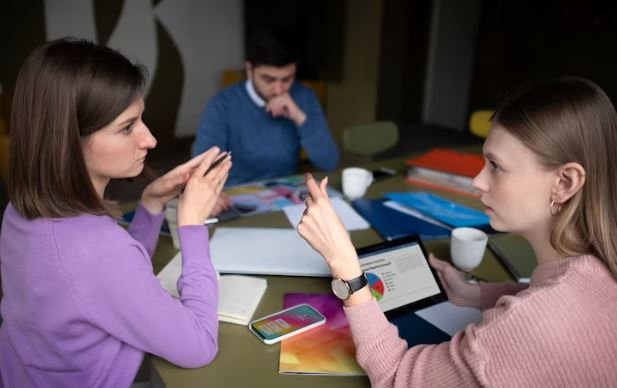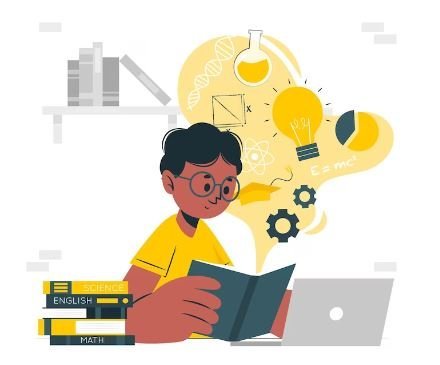Learning is like a thrilling adventure! Every day you learn, every day is a new puzzle and the more you go on learning it never ends. However, what you may not know is that there are things that can help or hinder your immersion. These are referred to as “determinants of learning”. Some of the motivations and reasons behind these factors may be discussed today, which would further alter your understanding of learning.
What Is Learning?
Now, learning is when you acquire new information abilities, and ideas. That might be at school when you are reading a book or working out maths puzzles. It can also be at home when you help cook, play a game even talk to your friends. Each time you learn something new, it makes your brain stronger (just as working out will strengthen muscles) and there is nothing quite like a change of pace to give yourself that creative edge. However, the process is sometimes not so simple and perhaps just something a bit more strange. Let’s find out why.
Your Environment
An important factor that influences your learning is the environment. Consider your environment the space that you are studying in. When the room is quiet and still, you can do something to help your brain out. Would you be able to do your homework while the TV is on, or if a little brother/sister of yours was all around? It would make learning so much harder! Likewise, when you are in a bright and managed classroom with less noise inside your surroundings, then it will be much simpler for you to be trained to concentrate. You will learn to study better in a happy, peaceful environment.
Your Teachers and Parents
Classmates as well as teachers and parents can also influence your studying. The teachers are certainly there to assist you on your learning journey. You read about new concepts, you see things done in practice and get help when you cannot find a way out. Learning becomes exciting, and more intelligible when a lecture is delivered by your teacher informally and interestingly.
You will also be supported by your parents, doing homework with you every day or making stories from the books they read in their spare time and finally encouraged to perform best as always! If teachers and parents back you up and support your learning, it will turn the scary task down into a game.
Your Health
Health: This is another pressing issue regulating the impact on learning. Now, imagine being in class and you are tired or hungry or feeling sick. It’s much harder, right? This is because you need energy for your body and brain to learn. Taking in proper nutrition from fruits vegetables, and whole grains to keep the brain at optimal working condition.
So, for the optimum health of the body, enough sleep at night is also crucial. Your brain gets a break when you sleep and is ready to learn new things the next day. Physical activity is a great way to keep your brain active, it helps you remain alert and energized.
Your Emotions
However, do you ever find that when you’re feeling happy it all comes easier? They are emotional variables in learning When you feel sad worried or scared, it is difficult to focus on your teacher and work. However, when you are happy, thrilled and confident it’s all a game of knowledge. So when you feel worried or upset about something, you must speak with your parents or teachers to let them know how bad it feels. When your brain is calm and happy, it learns best and grows.
Your Motivation
Motivation is what makes you want to learn It’s kind of like the engine in a car. Well, without an engine the car ain’t going anywhere! Motivation is what gets you out of bed every day and keeps driving you to do well in school or pursue new ideas. You know there are times you will be interested in learning more about a subject due to it being your favourite — art or science.
But other times, when you are not as interested in a subject (like math or reading), you might have to work harder on paying attention. However, if you tell yourself that learning is necessary and something required to get closer to your dreams then it at least makes you learnable so long as the recurring application of this system motivates your efforts.
Your Friends
Do you know that even your friends are also good at learning? If your friends are studious and participate in class, most likely you will be too. Homework help, study opportunities and ideas can be exchanged But if your friends are distracting you, or not paying attention in class… it might even be a way that makes focusing harder.
Selecting good friends who challenge you to end up being the best form of yourself may aid make learning not only much more delightful but also extra effective.
The Tools You Use
How hard would it be to write a story without using a pencil or trying to solve that one math problem, but not having a calculator? Tools for learning The type of tools you use to learn is also another thing that impacts your education. The tools could be books, pencils paper computers or even fun learning games.
These tools help a lot in practising something or learning new things. Learning is a lot easier if you have everything that you need. However, working with the wrong tools can make learning seem like a chore. This is why you will be well prepared when studying or working on your homework, having all of your school supplies at hand.
Your Learning Style
Learning styles refer to how every single person learns. Those that are preferred visual learners, see best when pictures or videos. Listening (for example when the teacher tells me something verbally) For some people, their preferred learning style is tactile—building something with their hands or physically acting out a story.
Understanding your learning style is more about understanding how you learn things easily. For instance, if you learn best visually, and your teacher shows images or colour code notes. One of the secrets to learning more readily and enjoyably is realising what type of learner you are.

How Time Affects Learning
Another hopeless sort of is the time that can be dedicated to learning. Done homework at the speed of light, so that you can go out and run around. The work suffers because it becomes harder to concentrate when you rush. It allows you to slow down and think more clearly about how well or not so well, for instance as in my case the subject matter might be landing on at your end.
Also, remember the wise words of Hannah Arendt: You must take direct breaks while studying. Overstudy — If you try to memorize the material for a long without taking a break, your brain will be overwhelmed and it makes it harder than what have learned. Hence, it is vital to get the proper balance between study time and break time to conveniently assist with learning.
Challenges and Mistakes
All of us encounter difficulties as we learn something new. Perhaps you have a difficult time reading or puzzle through math problems. But guess what? With challenges and sure failure each comes mistakes, which by definition are a natural part of learning. Given how close you were to getting it right every time. The more you practice, the better results your mind knows how to see. So please, do not fear challenges or failure. They make you wiser and stronger.
How Your Brain Works
It works like a strong computer. If you learn, your brain forges connections between ideas that allow links to build in the mind. The more you practice something, the stronger those connections get. it’s like a road that gets wider and smoother. Which is why practice matters so much. The more you learn to read, the better a reader grows.
The more you practice writing (as well as horse riding), and so on. When you know how the brain functions, it will become more and more evident that learning is a process in which time, patience, and practice form an essential aspect.
The Power of Asking Questions
The greatest way of learning is to ask. When you are curious towards anything and tend to ask questions, it’s the pathway to gaining an extra edge over information. Questions give you a better understanding and provide more knowledge. So, never hesitate to ask your teacher, parents or friends whenever you face something fuzzy. Questioning is a great method that we use to help our brains develop and learn new stuff.
The Joy of Learning
Sometimes it becomes more than just schoolwork or assignments; learning means exploring the world, trying new things and also enjoying them. Learning has to be joyful – if you enjoy learning it is never hard work. When you learn a new interesting fact about your favourite dinosaur, or when something clicks and you solve that tricky puzzle.
Excitement in learning is what makes it so enjoyable. If you are excited and hungry, learning is an enjoyable game in which the stakes keep lowering every day.
In Conclusion: The Adventure of Learning
Then, What Are The Criterion Of Affecting Learning? These are all of the things in your environment that either make learning much easier or near impossible. The sounds and smells around you, the make of your teachers, how well is your health feeling today or yesterday for that matter, are there any negative emotions coming up with this topic again oh it feels so boring to me and last but certainly not least my friends.
The tools that you employ, how it is their method of learning and the time you are devoting to learning also have an effect. However, the number one thing is to remember that learning itself is an adventure. These changes are not easy to implement and sure, there is failure along the way but with a change in thinking (attitude), and education(support — program/degree/career academy), you take good steps forward every time a risk or challenge is faced to fill your brain full of these magnificent ideas. To discover more, Inquire and Remember to participate in your learning process.


